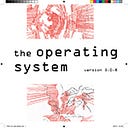9TH ANNUAL NAPOMO 30/30/30 :: DAY 23 :: KRISTINE ESSER SLENTZ on TIM DLUGOS
I first met Tim Dlugos when I was applying to Columbia College’s undergrad program. At the time, it was the only institution in the nation that offered a poetry major. Excited at this prospect, I journeyed to the campus to meet with an English Department advisor to discuss the possibility of my acceptance. Upon meeting, I was given a copy of the school’s yearly poetry anthology, Columbia Poetry Review, which listed the faculty member David Trinidad, who edited an anthology of Tim’s poems. I spent the whole South Shore train ride from Chicago back home to northwest Indiana devouring all of these poems, which continued upon my return to my sadly maintained but internet-accessible rental home.
Tim, a deceased stranger largely from the east coast, hypnotized my 17-year-old brain, though I can’t tell you how the haze descended or what my mind’s intended gravitations were at the time. I hadn’t a clue as to why I felt so connected to who I assumed was another “old school” poet by his black and white photos. After I left my haphazardly sheltered life, I learned it was mostly due to his strong religious affiliations and proud queerness — two things I inwardly and openly brawled with at the time, both consciously and subconsciously. Tim was a Christian Brother at LaSalle College in Philly. Then he was a part of the activist driven poetry reading series Mass Transit while living in Washington. D.C. and then moved to NYC to join the Poetry Project staff. Later, after Tim learned he was HIV+, he went to Yale University to become an Episcopalian priest. Our twisted-turns of education (mine running from a public school to homeschool back to public only to get my GED to commuter college to a large public university) only deepened my love for this majestic man.
So, I bought a few of Dlugos’ books that are only available in first edition. My devote cult-Christian mother was so happy. Upon receiving his first chapbook, High There, in the mail, my life was permanently altered. A poem that has forever stuck with me is “Allentown” because of its sexual rawness but also emotional tenderness that can be applied to so much in life, though admittedly, it was only of the erotic nature at 17.
ALLENTOWN
waking to
rain and
still being
drunk and
trying again
to fuck before
the bus came
I learned that Tim’s best known poem is “G-9,” titled after the HIV/AIDS ward of Roosevelt Hospital in Manhattan where he was treated. This excessively long, one-stanza piece is both humorous and somber while addressing the acceptance of mortality. Tim works to describe the sentiment of seeing his close loved ones grow sick and pass away in such a short amount of time, along with himself, while also clapping back at certain schools of prominent poets. This epic was published in The Paris Review only a few months before Tim departed this life of AIDS-related complications at the age of 40. Throughout my teens and into my 30s, I’ve had to face my own mortality and the mortality of friends and family, and Tim just gets that.
I’m sitting here during this mass self-distancing/quarantine pandemic thinking about Tim. I pull out A Fast Life, a book of his I haven’t read in years. Immediately I see how his words have echoed through my works and have even wedged themselves into my current thesis project. My style has vastly changed since discovering this personally pivotal poet, but essences of Tim’s lyricism are still here with me.
Kristine Esser Slentz is a queer, experimental poet from northwest Indiana and the Chicagoland area. She is a Purdue University alum who double-majored in English literature and creative writing. Currently, she is earning her MFA in creative writing (poetry) at City College of New York where she is an adjunct professor and a co-organizer of the MFA Reading Series. Kristine has also been long-listed with Rhythm & Bones Press and will be completing a residency with Poets Afloat. Some places her poetry has appeared in or is forthcoming include Yes Poetry, Moonchild Magazine, The Shallow Ends, Glass Poetry, Pink Plastic House, Barren Magazine, Crab Fat Magazine, Philosophical Idiot, and Flying Island Journal, where she was nominated for a 2017 Pushcart Prize.

